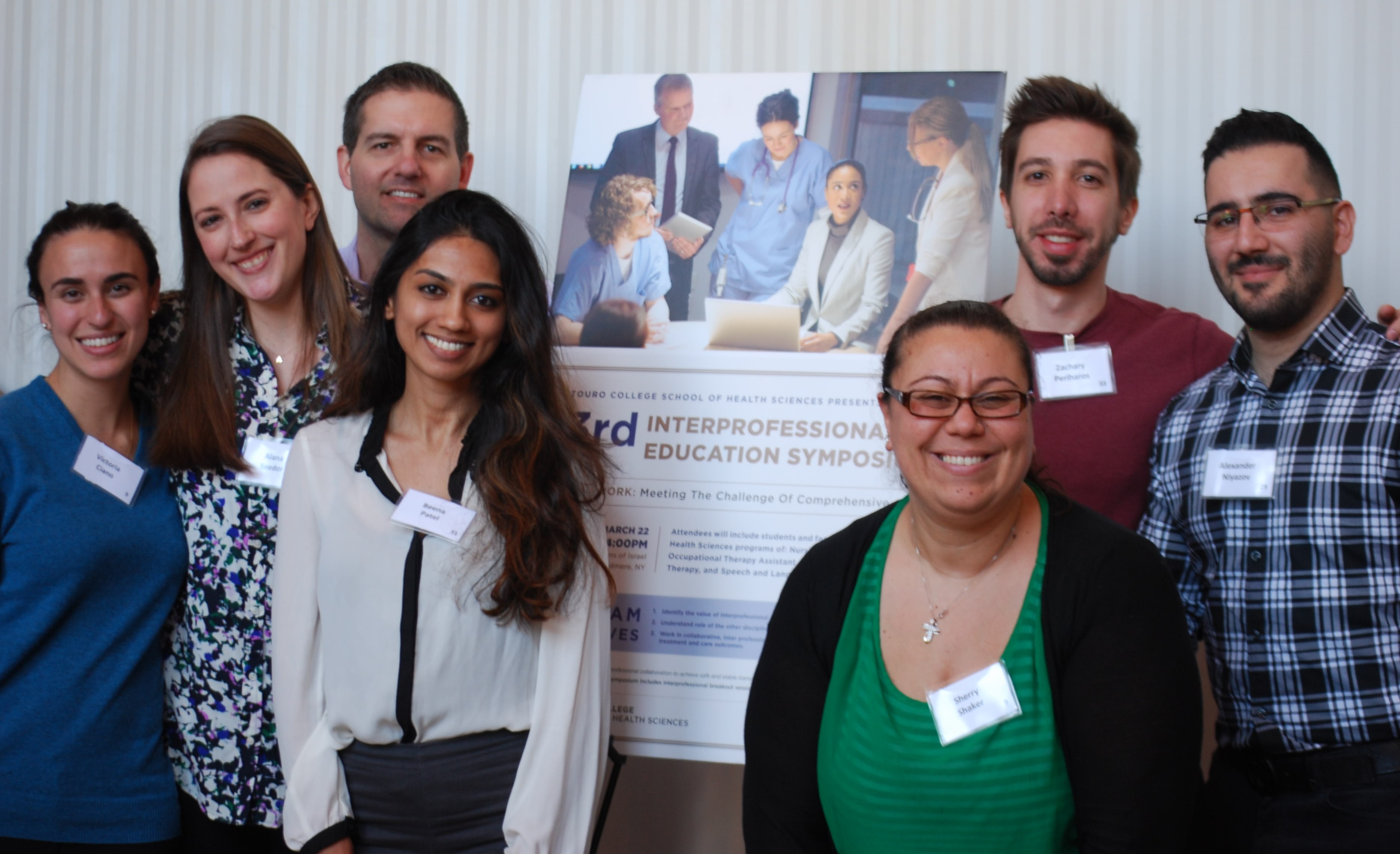The Forgotten Patient: Learning to Treat Adults with Autism Spectrum Disorder
Students from Varying Touro Programs Collaborate at the School of Health Sciences 3rd Annual Interprofessional Education Symposium

New York, N.Y. - Children with Autism Spectrum Disorder (ASD) face social, emotional, and intellectual challenges every day, and many of those challenges can be met through early intervention and special education programs.
But what happens when those children with ASD become adults with ASD who ‘age out’ of the system and are expected to manage life’s basic necessities− including their own health care? At a recent Interprofessional Education Symposium (IPE) sponsored by Touro College School of Health Sciences, over 350 students, faculty, and clinicians from the departments of Physical Therapy, Occupational Therapy, Nursing, Speech Language Pathology, and Physician Assistant gathered to assess the formidable hurdles that health care professionals confront when treating adult patients with ASD.
“Adults with autism are the forgotten patients,” said Dr. Steven Blaustein, Associate Professor of Speech and Language Pathology at Touro College School of Health Sciences and a nationally recognized expert on ASD. “They have difficulty navigating a health care system that relies heavily on verbal communication.” Dr. Blaustein cited studies indicating that adults with ASD, who are “a growing population,” are more likely to live in poverty with less access to medical care.
In a recent survey of healthcare professionals, the vast majority said they felt they were not adequately prepared to deal with individuals with autism and they required more training.
To address the lack of information in this area, the Symposium −which each year spotlights the collaborative, interdisciplinary approach to delivering quality healthcare− offered best practices for treating adult patients with ASD, especially those in the acute care setting, whose symptomatic characteristics such as tactile hypersensitivity and communication deficits can prevent them from receiving optimal care.
“As a healthcare professional, it is hard to care for a patient who can’t respond in a particular way to your intervention,” said Dr. Alex Lopez, an Assistant Prof. of Occupational Therapy at SHS. “Treating autism is a multidisciplinary effort and the diagnostic process is also multidisciplinary. Often you will need a team of doctors, occupational therapists (OTs), speech language pathologists (SLPs), physical therapists (PTs), physician assistants (PAs), and psychologists to provide a diagnosis.”
To help students become professionals who can offer coordinated care for adults with ASD, Symposium participants learned to develop a collaborative care plan for a fictitious 23-year-old patient with ASD who had sustained a neck injury. In addition to routine treatment for the injury provided by OTs, PTs, Nurses, and PA’s, consultations with SLP’s, psychologists, and nutritionists were required to address the patient’s verbal deficits, texture aversions, and limited diet. Had this been a real case, the entire healthcare team would be required to possess adequate skills to treat someone with ASD.
“There is no one answer in this hypothetical case study,” said Dr. Blaustein. “Just like in real life, it’s collaborative. This case draws from all of the specialties and situations that arise. It was designed to challenge the students to incorporate all of the various skill sets and expertise they have studied.”
Prior to the group sessions, a man in his mid-20s with ASD named Michael, who works at Staples, presented a remarkably candid personal perspective on the challenges in his life, work, and social interactions with peers and professionals: “Sometimes I get stuck in my mind about the way I think a process should go, and this has gotten me into trouble,” he said, barely looking at his audience. “It is hard for me to understand new expectations, or ways in which schedules change. Sometimes others need to pitch in and speak with a manager to clarify for me what is happening.”
Michael’s presentation underscored the importance of the healthcare community’s understanding of the role that collaborative, interprofessional teams play in treating the ASD segment of the population. Said Dr. Lopez, “With ASD patients, as with all patients, we have to recognize the complexity of care, to heal, to consult, and to advocate. We are here to make a difference in the lives of others.”

